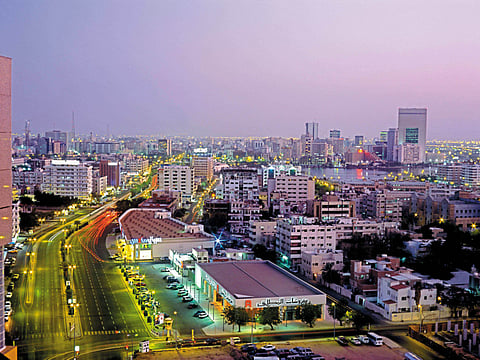Saudi bureaucracy must pull up its socks
The aim should be to raise efficiency and not blame the public for poor service

The word ‘fool’ as defined in most dictionaries suggests a label that applies to a weak-minded person. ‘Fool’ also has a wide array of other descriptive words associated with it, among them a simpleton, a dunce, a blockhead, a numskull, a nincompoop, a moron, an imbecile, or an idiot. All words essentially mean the same thing.
I have long suspected that most public-sector officials in Saudi Arabia do indeed take us for fools. My suspicions have been formed over the years through the various statements that emanate from the mouths of such bureaucrats entrusted with providing us with basic facilities such as water, electricity, roads, communication, sewage disposal, etc.
Granted, Saudi Arabia has come a long way in improving services and tightening accountability, but old habits die hard and we have to face the same old mindset. Only through attrition, retirement or death will modern-day philosophy take over our public-sector facilities with an emerging and youthful cadre of professionals.
And so when I recently read a press report in which the chief of the Saudi Electricity Company in the western region was claiming that the continuous power outages in Jeddah, Saudi Arabia’s largest cosmopolitan city, are due to the increasing electricity consumption during the heat of the summer, it reaffirmed my previous reservations.
In trying to explain to the media the reasons for the interruption in the supply of electricity to several neighbourhoods all over Jeddah in recent weeks, the official in question was quoted in an Arabic daily as saying, “Consumption has remarkably increased since the beginning of this month by 8 per cent.”
Perhaps someone should have explained to him that the month began on May 1, whereas the power blackouts had started much earlier.
And he didn’t stop at that. He went on to clarify the situation in the worst-hit areas of Jeddah, the southern part of the city, by stating that the delay in fixing the power stations, which have been experiencing abnormal overloads “in this past month” was due to the interference of large and angry crowds of residents in the power-less areas and neighbourhoods. “Protesters made it difficult for technicians to fix the failure in a main grid in southern Jeddah. Security forces had to disperse the crowds so our engineers could begin the repair on the power station. Part of the problem was fixed and the rest will be fixed soon. Technicians are working 24/7.”
And like any true bureaucrats, the chief did not fail us! Blame has to be pinned on someone else, and so he stated that construction activity around the power station was also responsible for the problem. “A lot of digging eventually affects the electricity infrastructure in the area. That is why the electricity company is currently coordinating with the Jeddah city council to avoid similar problems in the future.”
I wonder why everything in Saudi Arabia is done on a ‘currently’ basis? Why isn’t this form of coordination a natural part and parcel of law between the various public service sectors right from the beginning? You don’t need rocket science to establish such rules in a city that has been in existence for centuries.
The electric supply official had something more to say. He refuted charges that power cuts and outages were happening as a result of old and worn-out cables and equipment. “This is inaccurate. Electric cables are supposed to have a long life and networks work efficiently for more than 35 years.” He concluded his report to the media by assuring the public that although the electricity company was doing its best to cater to customers’ needs, the customers had to cooperate and reduce consumption as well.
As Ramadan begins, the heat of the summer is all set to turn severe. Several neighbourhoods in Jeddah wait in anxiety over daily power outages that could last for a considerable portion of the day. Many will have suffered losses with food that get spoiled and eventually have to be thrown away. It is particularly shameful that such incidents happen during Ramadan — a time for giving and sharing. And from what I understand from the charges of the head of the electricity supply company in the western sector, the problem basically lies with us and not with his organisation.
Residents have increased their personal consumption during summer months. They should be ashamed of using extra electricity to power air-conditioners in temperatures that average over 40 degrees Celsius on most days! They should be ashamed to store excess perishable food in their refrigerators, only to see them rot when the power goes off. Some of us should also be ashamed of getting angry enough to march to the nearest power station to express our ire.
And finally, shame on contractors and their workers for digging up areas for construction work after procuring proper licences and authorisations from the municipality!
It is never the fault of bureaucrats in the public sectors, but it is me who is to blame. You see, I am the fool.
Tariq A. Al Maeena is a Saudi socio-political commentator. He lives in Jeddah. You can follow him on Twitter at twitter.com/@talmaeena.


